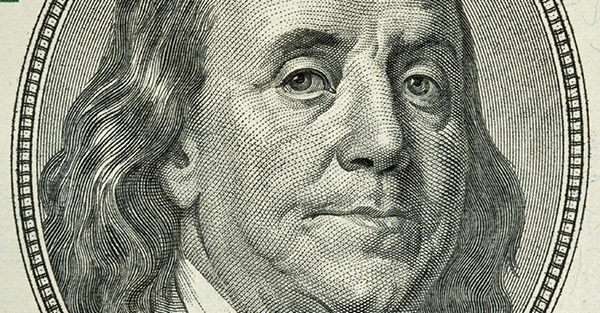September 16, 2015
Sovereign Valley Farm, Chile
Six months ago, on March 16, 2015, the government of the United States of America once again reached its statutory debt limit.
In other words, the Land of the Free had maxed out its credit card and was legally barred from borrowing a penny more.
That’s pretty sad when you think about it.
The supposedly richest country in the world is such a deadbeat that they had borrowed the maximum amount of money as permitted by its own law.
They call it the ‘debt ceiling’. And the only way to borrow more is for Congress to pass a new law… something that, embarrassingly enough, has occurred dozens of times over the past few decades.
The US is undoubtedly addicted to debt.
So much so, in fact, that even when the government hits the debt ceiling, it still doesn’t deter them from borrowing.
Rather than shocking them into taking drastic action to reduce the debt, they just find creative ways to keep borrowing that don’t –technically- count towards the debt ceiling.
In the words of the United States Secretary of the Treasury, they’re known as ‘extraordinary measures’.
And in a letter to Congress that he sent last Thursday, Secretary Lew described “the extraordinary measures we have taken to avoid default,” which include grabbing money from federal retirement funds.
It’s truly pathetic– to be so dependent on debt that even when you legally breach your credit limit, your only option is to start stealing from your employees.
That’s not how it works in the real world. Responsible adults have to figure out a way to make ends meet.
Too much month at the end of the money means making tough decisions, and, at a minimum, is treated as a personal crisis.
For the US government, however, overspending is an entitlement that’s now built into the system.
It’s just business as usual for these guys… and it’s truly incredible how cavalier they are about such a devastating weakness.
Here’s some hard facts: there are basically three categories of government spending.
First is what’s called Discretionary Spending. This is what Congress debates about endlessly—deciding how much money each department of government will receive every fiscal year.
Then there’s the Mandatory Spending. These are programs like Social Security, Medicare, etc. which are set by law.
Congress doesn’t have to debate anything with these programs, the money just automatically gets sucked out of the Treasury, just like your monthly mortgage payment.
Last is interest on the debt, which, sadly, is so big that it has its own category.
Right now the system is so screwed up that if you add up the Mandatory Spending programs AND interest on the debt, the total is nearly as big as ALL of the government’s tax revenue.
In other words, you could eliminate nearly every department of government—Homeland Security, the State Department, etc. and the US government would still likely be running a deficit.
And that problem is only going to get worse. By the government’s own estimates, the long-term shortfall in its major mandatory entitlement programs is more than $42 trillion.
If you add the $18 trillion (and rising) in US debt, America’s total liabilities exceed $60 trillion.
This is not a drill. This is real world, and the situation is dire.
Oh there’s just one more thing.
The Treasury Department (by its own admission) is running out of money.
In the same letter to Congress from last week, Secretary Lew disclosed that the Treasury Department’s cash balance had fallen below its minimum level.
He also mentioned that his extraordinary measures were running out, urging Congress to please please please raise the debt ceiling for the 79th time since 1960.
The Treasury Department is out of options. And candidly, the government itself is running out of options.
Now, tonight there’s apparently another debate of leading Presidential candidates.
If asked what they’ll do about the US debt, there will probably be a lot of high-sounding language and tough talk.
But at the end of the day, the cold reality is that the government has no choice but to default.
They could default on their creditors like China who have purchased trillions in US debt. But that would only temporarily solve the problem, not to mention cause a catastrophic financial crisis across the entire world.
Or they could default on the Federal Reserve, which also owns several trillion dollars in US debt. Though that would cause an unprecedented currency crisis and a run on the US dollar.
Most likely, they’ll default on the promises they’ve made to their citizens.
Namely, they’ll default on their obligation to maintain a sound and stable currency; and their obligation to provide retirement income from the Social Security program that people will have spent their entire lives paying into.
This is something you can absolutely count on.
Of course they’re going to tell you that if you’re dissatisfied, the only thing you can do is go to the voting booth and cast a ballot.
And in the meantime they’ll parade a bunch of candidates around who will tell you every lie that you want to hear.
“Social Security is fine.”
“We can get the debt under control.”
It’s all a bunch of BS.
The truth is that while the government has no good options remaining, you have very powerful options and solutions at your disposal as long as you have the courage to look at objective data and stop believing their lies.
This is no time for ‘hope’. Rational people have Plan B. It’s time to make sure yours is airtight.








